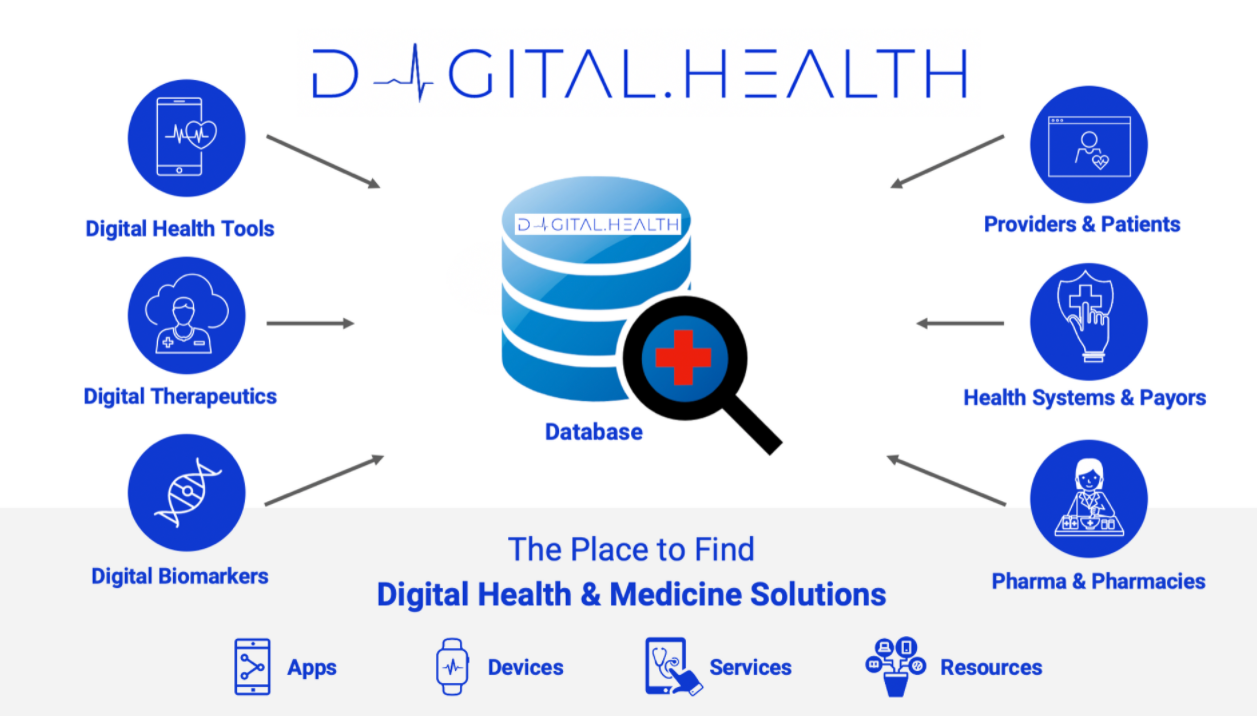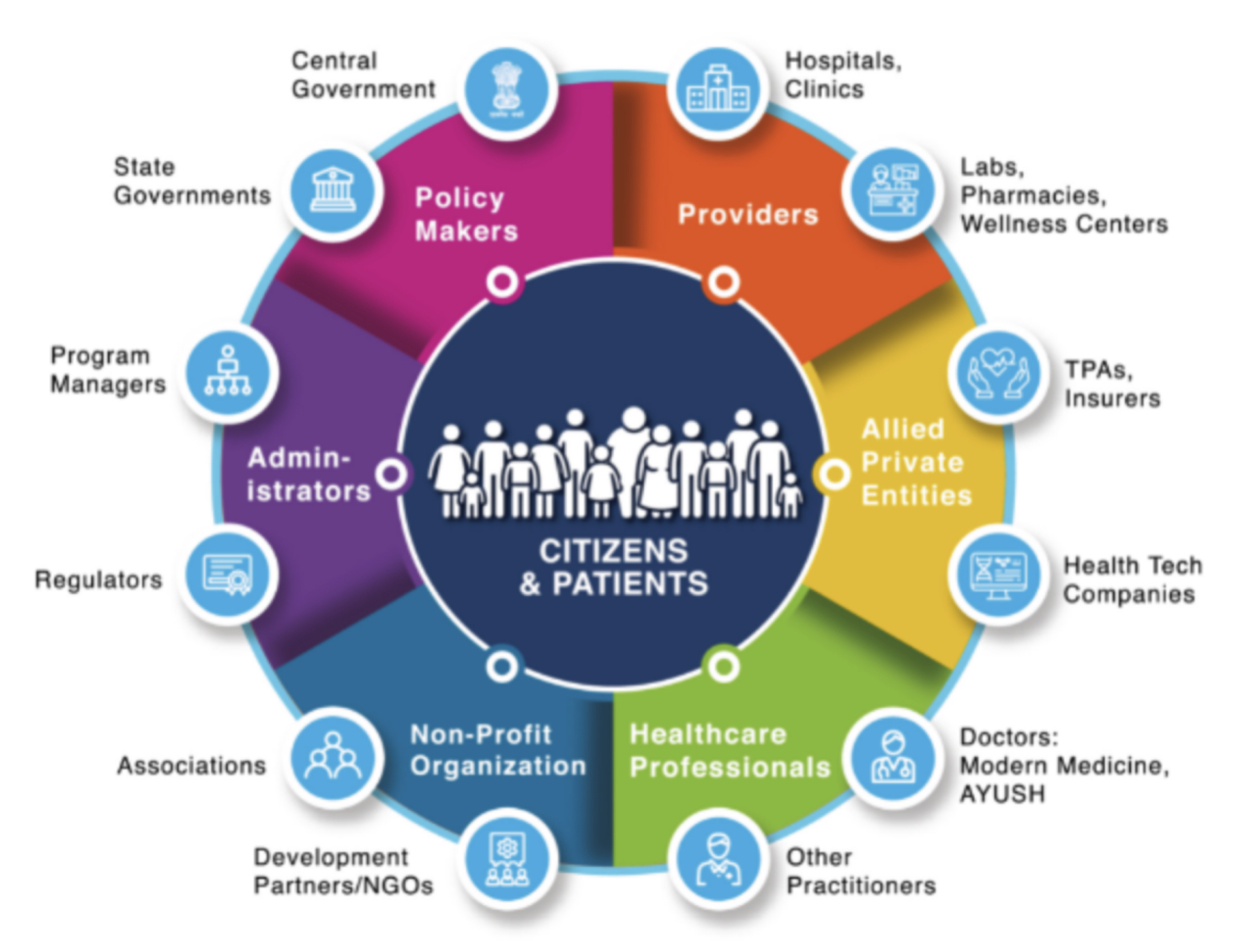ForumIAS announcing GS Foundation Program for UPSC CSE 2025-26 from 19 April. Click Here for more information.
Contents
| For 7PM Editorial Archives click HERE → |
Introduction
Digital health is a rapidly growing field in the global health sector. Various terms like e-health, telehealth, telemedicine, and health apps are used interchangeably with digital health. The landscape of digital health is expanding, encompassing mobile health (mHealth), digital data management, teleconsultations, wearable devices, and more. The growth of digital health interventions has been accelerated by factors like the COVID-19 pandemic, increasing smartphone penetration, and investments in healthcare IT infrastructure.
What is digital health?
Digital health is a multidisciplinary framework that involves the integration of software, hardware, and services to provide healthcare solutions. It encompasses the use of disruptive technologies that provide digital and objective data accessible to both caregivers and patients. The goal of digi health is to establish an equal-level doctor-patient relationship, shared decision-making, and democratization of care. It focuses on improving the quality, efficiency, and accessibility of healthcare services through technology interventions.
What are the components of digital health?

Digital health comprises various components, including:
Software applications: Health apps, electronic medical records (EMR), and health informatics platforms are part of the digital health ecosystem.
Hardware devices: Wearable health devices with sensors, mobile devices, and tablets with customized software applications are used for healthcare services.
Services: Telemedicine, teleconsultations, and telehealth platforms enable the delivery of healthcare services using information and communication technologies. These services facilitate diagnosis, treatment, prevention, research, evaluation, and continuing education of healthcare providers.
Note: Telemedicine refers to the delivery of healthcare services using information and communication technologies when distance is a critical factor. It involves the exchange of valid information for diagnosis, treatment, and prevention of disease and injuries. Telemedicine also facilitates research, evaluation, and continuing education for healthcare providers. It enables remote consultations, making healthcare accessible to individuals who may not have easy physical access to healthcare facilities.
How has the growth of digital health interventions been fuelled?

Impact of the global pandemic: During the global pandemic, the healthcare sector received heightened attention and priority, leading to a significant boost in the adoption of digital health interventions. Telemedicine platforms and remote monitoring solutions saw a substantial increase in usage as they enabled healthcare providers to remotely monitor patient health and provide care.
Increasing smartphone penetration: The widespread use of smartphones across the globe has played a crucial role in the growth of digital health interventions. Mobile health apps and platforms have made healthcare more accessible and convenient for individuals. These apps allow users to monitor their health parameters, access medical information, and even consult with healthcare professionals remotely. For instance, apps that track and manage chronic diseases like diabetes or provide fitness guidance have become popular among users.
Rapid investments in healthcare IT infrastructure: Developing and developed nations have made substantial investments in healthcare IT infrastructure, further fueling the growth of digital health interventions. These investments have created a robust foundation for the implementation of digital solutions and have facilitated the integration of various healthcare systems.
Prevalence of chronic diseases: The increasing prevalence of chronic diseases, such as diabetes, cardiovascular diseases, and cancer, has driven the demand for digital health solutions. These solutions offer personalized care plans, remote patient monitoring, and improved patient engagement, enhancing the management of chronic conditions.
What are the advantages of digital health?
Equity and inclusion in healthcare: Digital health interventions have significantly improved access to healthcare services, particularly for individuals in remote or underserved areas. Telemedicine and teleconsultation services allow patients to receive medical advice and treatment from the comfort of their homes, reducing the need for travel and long waiting times. Furthermore, digital health interventions can cater to diverse populations by providing multilingual platforms and accommodating various cultural and linguistic preferences.
Enhanced patient engagement and empowerment: Digital health solutions empower patients by providing them with access to their health information and tools to actively manage their health. Health apps and wearable devices enable individuals to track their vital signs, monitor their progress, and make informed decisions about their well-being.
Efficient and streamlined healthcare delivery: The adoption of digital tools in healthcare has led to increased efficiency and streamlined processes. Electronic medical records (EMRs) and health informatics platforms enable healthcare providers to access and share patient information seamlessly, reducing paperwork and eliminating errors associated with manual record-keeping.
Cost savings for patients and healthcare systems: Digital health interventions have the potential to reduce healthcare costs for both patients and healthcare systems. By minimizing the need for in-person consultations and hospital visits, telemedicine and remote monitoring solutions can lower out-of-pocket expenses for patients. Additionally, digi health technologies improve operational efficiency and resource allocation in healthcare institutions.
Enhanced quality of care and outcomes: Digital health interventions enable healthcare providers to deliver personalized and evidence based care. Access to real-time patient data, health analytics, and decision support tools help healthcare professionals make informed clinical decisions, leading to improved treatment outcomes and patient safety.
Advancements in medical research and innovation: Digital health platforms and data analytics contribute to medical research and innovation by facilitating the collection and analysis of large-scale health data. This data-driven approach supports evidence-based decision-making, clinical trials, and the development of new treatments and interventions.
What are the government initiatives in digital health?
Ayushman Bharat Digital Mission (ABDM): Launched by the Government of India, ABDM aims to develop an integrated digital health infrastructure that connects various stakeholders in the healthcare ecosystem. It focuses on providing a wide range of data, information, and infrastructure services while ensuring the security and privacy of health-related personal information.
CoWIN: The Covid Vaccine Intelligence Network (CoWIN) system serves as the technological backbone of India’s Covid-19 vaccination program. It enables citizens to book vaccination appointments, facilitates vaccine stock management, and generates digital vaccination certificates. CoWIN has played a crucial role in the administration of millions of vaccine doses across the country.
Tele-MANAS: Telemental Health Assistance and Networking Across States (Tele-MANAS) is an initiative that provides free mental health services through video consultations with mental health specialists. It aims to offer counseling, medical interventions, follow-up services, and linkages to in-person care, particularly in remote areas and for vulnerable populations.
Ni-kshay 2.0 Portal: The Ni-kshay 2.0 Portal is a digital platform launched by the Indian government to support community involvement in tuberculosis (TB) care. It enables the registration of TB patients and facilitates additional support from donors, including diagnostic services, nutritional aid, and vocational support. The platform enhances the management and monitoring of TB patients’ needs.
Health Technology Assessment (HTA): Under the Department of Health Research, the Health Technology Assessment in India (HTAIn) serves as an institutional arrangement for evidence-based decision-making in health. HTAIn evaluates the clinical effectiveness and cost-effectiveness of health technologies, medicines, and programs. It supports the formulation of health policies and the efficient allocation of resources.
Sanjeevani app: The Sanjeevani app is a telemedicine and teleconsultation platform launched by the Government of India. It has been widely recognized for its extensive medical services, especially during the Covid-19 pandemic. The app enables remote consultations between doctors and patients, providing access to healthcare services from the comfort of one’s home. It has been instrumental in expanding the reach of healthcare and ensuring timely medical support, particularly in rural and hard-to-reach areas.
| Must read: Ayushman Bharat Digital Health Mission – Explained, pointwise |
Conclusion
Digi health has emerged as a transformative force in the healthcare sector, driven by advancements in technology and increased accessibility to healthcare services. It offers numerous advantages such as improved access to care, cost-effectiveness, enhanced efficiency, and better health outcomes. Government initiatives like Ayushman Bharat Digital Mission and the Sanjeevani app have played a pivotal role in advancing digi health interventions and benefiting a large population. The future of healthcare looks promising with the continued growth of digital health.
Source: Yojana
Syllabus: GS 2: Social Justice: Issues relating to development and management of Social Sector/Services relating to Health.




